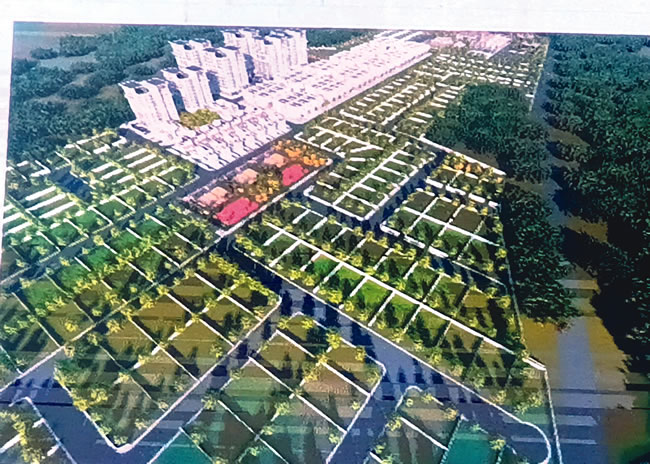Introduction
As the second most populated continent in the world, Africa’s population increases each passing day, and this points to one thing in the real estate sector: high demand and growth. By 2030, it is projected that the African real estate market will peak at approximately $200 billion, which appears progressive. However, amid this progress in the rising demand for commercial and residential properties, real estate coaching professionals must carefully navigate the burgeoning market to ensure that coaching strategies align with cultural beliefs and contexts across the continent. Cultural nuances are minor yet major shifts in any market, and in the real estate market, they play a role in shaping property preferences, investment decisions, client interactions, and many other factors.
Cultural Nuances in African Real Estate Markets
Africa is a diversified continent with over 54 countries, each with its unique cultural background and psychographics that influence the real estate dynamics of the continent. In Africa, lifestyle is usually categorized as conservative, especially regarding the practice of communal living, all of which factor into property preferences—structures that can accommodate larger households.
One common denominator in African properties is a built environment with multi-generational homes, which not only serve as a signature aesthetic but also highlight family cohesion. Another dynamic in the African real estate market is the strong wave of religious inclinations, which influence property choices. For instance, in the northern part of Nigeria, residents are more likely to purchase a house in close proximity to a mosque. This also aligns with the Northerners’ desired house structures, which follow a pattern distinct from conventional designs.
These cultural factors necessitate a tailored approach in real estate coaching to align with local customs and expectations so that clients’ needs are met with a strong sense of subjective understanding.
Key Cultural Considerations in Real Estate Coaching
Language and Communication Styles
This is the first step to successfully navigating the real estate market as a coach. Communication is the lifeline of any relationship. For any real estate coaching process or transaction to be successful, effective communication must be present. Africa has over 2,000 spoken languages. Even if learning all languages is impractical, it is vital to understand the key languages of the country in which one operates.
However, communication is not just about language—it extends to non-verbal cues, including body gestures, tone, and dress patterns. Understanding these key communication elements is essential for ensuring smooth client relationships.
Decision-Making Processes
Decision-making in Africa, particularly in real estate, often takes a collective form. Clients frequently seek validation from family members or community leaders before making a final decision. This means that, as a coach in this part of the world, one must be prepared to have multiple conversations on a subject with different people.
In doing this, coaches must uphold respect while engaging with stakeholders, acknowledge hierarchical structures, and value every input received.
Trust and Relationship Building
Trust is paramount to sustaining relationships of any kind; it is the ultimate value for Africans. Once trust is established, the rest follows naturally. Through community engagement and personalized interactions, this trust can be built. A strong trail of credibility as a professional automatically opens doors to referrals, as clients are drawn to professionals with a proven track record of trustworthiness.
Strategies for Tailoring Real Estate Coaching to African Markets
Culturally Adapted Training Programs
For effective results, coaching materials and aids should be designed to fit local values and the overall context of the immediate environment. It is best to use examples curated according to existing scenarios for easier understanding. For example, addressing land tenure systems unique to certain African countries can provide practical insights for real estate professionals.
Localized Marketing and Engagement
As discussed earlier, communication must incorporate local elements such as language, dress patterns, and symbols with specific cultural meanings. When these elements are leveraged, engagement increases, making them essential for crafting marketing messages.
Legal and Ethical Awareness
Land ownership in Africa’s real estate sector consists of diverse frameworks, including customary land rights. Coaches should help clients navigate these frameworks to ensure compliance with local laws and ethical standards. For instance, understanding the intricacies of communal land ownership is crucial for successful transactions.
Challenges and Opportunities
Although the adoption of modern real estate practices allows authorities to achieve efficiency, there is often resistance from traditional customs and skepticism toward new methodologies. However, embracing digital transformationo7 presents an opportunity for innovation. The rapid advancements in property trading, including virtual property tours and online marketplaces, are shaping Africa’s readiness to adopt technology in real estate, providing fresh opportunities for coaching and interactive client engagement.
Conclusion and Recommendations
Integrating cultural nuances into coaching strategies is pertinent in Africa’s real estate market. Professionals that equip themselves with adequate cultural knowledge and demonstrate high levels of cultural sensitivity will be in a great position to build trust, develop and nurture strong relationships with clients, and taste sustainable success. As the market is dynamic, culturally responsive coaching will be essential in determining the future of real estate in Africa.
Tope Mark Odigie is the CEO of REB360, a Real Estate company focused on people empowerment and wealth creation and a passion of building inspired communities. She is also the founder of WIRE Africa (Women in Real Estate, Africa) an NGO with a mission to facilitate the participation and financial empowerment of African Women through real estate
ALSO READ TOP STORIES FROM NIGERIAN TRIBUNE
WATCH TOP VIDEOS FROM NIGERIAN TRIBUNE TV
- Let’s Talk About SELF-AWARENESS
- Is Your Confidence Mistaken for Pride? Let’s talk about it
- Is Etiquette About Perfection…Or Just Not Being Rude?
- Top Psychologist Reveal 3 Signs You’re Struggling With Imposter Syndrome
- Do You Pick Up Work-Related Calls at Midnight or Never? Let’s Talk About Boundaries







